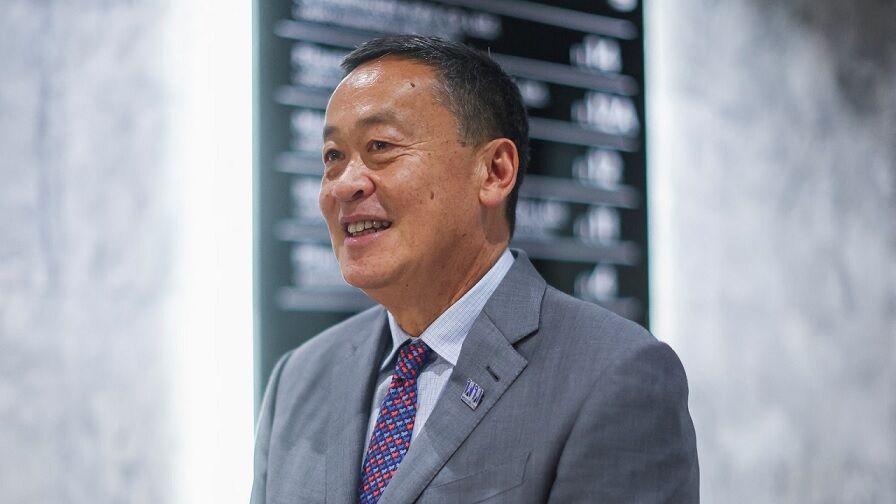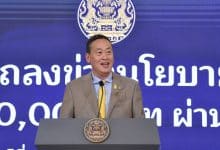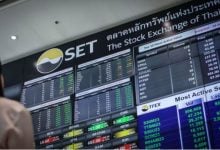Thai PM challenges central bank over interest rate hikes

Thailand Prime Minister Srettha Thavisin, who also holds the position of Minister of Finance, openly expressed his discontent with the Bank of Thailand’s decision to increase interest rates amidst a period of prolonged negative inflation. This move, according to the Thai prime minister, is detrimental to the nation’s economic well-being and disproportionately affects those on lower incomes and small to medium-sized enterprises (SMEs).
In an unanticipated late-night social media post dated yesterday, PM Srettha articulated his concerns, highlighting the adverse effects of the central bank’s policy on the economic landscape. The 61 year old prime minister’s post underscored the incongruity of raising interest rates in a climate where inflation has been consistently below zero for several months.
In light of these developments, the Thai PM directed the Ministry of Commerce, along with the Ministry of Agriculture and other relevant bodies, to review and adjust the prices of certain agricultural commodities. The concern raised points towards the possibility that these goods may be undervalued, and such adjustments could potentially provide relief to those affected by the current economic strain.
Bangkok-born Srettha called upon the Bank of Thailand to reassess its approach and consider the broader impact of its monetary policies on the populace. The prime minister’s plea to the central bank is to align its interest rate decisions more closely with the current inflationary trends, thereby prioritising the financial welfare of the citizens.
The Bank of Thailand’s stance on interest rates is a critical factor in the country’s economic framework, influencing borrowing costs and consumer spending. The central bank’s decisions are typically made to control inflation and stabilise the national currency.
However, the PM’s recent remarks suggest a discord between the government’s fiscal objectives and the monetary policy regulator’s actions.
This unfolding situation reveals the complexities of managing an economy where multiple stakeholders are involved. The central bank’s independence in setting interest rates is a standard practice worldwide, aimed at preventing political interference in monetary policy.
However, when such decisions appear to conflict with the government’s economic strategy, especially during periods of negative inflation, it can lead to public disagreements, as evidenced by the Thai premier’s statement.
Economic Challenges
PM Srettha’s intervention signals a proactive stance in addressing the economic challenges facing the country. By engaging with the Ministry of Commerce and other relevant ministries, there is an indication of a concerted effort to mitigate the hardships encountered by the public due to the macroeconomic policies in place.
As the situation develops, stakeholders from various sectors are likely to keep a close watch on the responses from the Bank of Thailand and the government’s subsequent measures. The balancing act between maintaining economic stability and ensuring the financial health of the nation’s citizens continues to be a delicate and pivotal task for Thailand’s leadership, reported news.ch7.
Latest Thailand News
Follow The Thaiger on Google News:


























